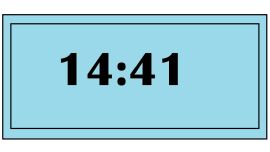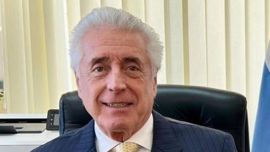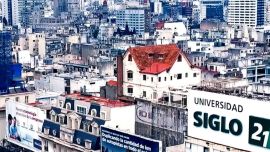Argentina has walked into one, overnight. Until midday, August 11, President Mauricio Macri seemed on track to continue fighting until the last minute of a long electoral year , seeking an unprecedented re-election for a nonPeronist leader. But, after the results of that day’s primaries, he has been left with virtually no power at all, to the extent that there are now doubts he can even steer a fragile economy beyond the October elections and into a civilised transition of command on December 10.
The race is on to fill that vacuum – and at stake is the fundamental fuel of all political engines: cash. The obvious suspect is VPE Alberto Fernández, the virtual-president-elect. The international media is struggling to find the right word to title Fernández with: likely, almost, probable, future, eventual, would-be president – and the list of adjectives goes on. But Fernández also has to carry out his own power-filling exercise quickly, as he assembles the complex Peronist coalition he will (mostly probably) have to lead in office in just a few weeks.
As with any politician born and raised in the Peronist ranks, Fernández is used to juggling with the symbology of power. Faced with the odd situation of being under everybody’s (and most importantly, the financial market’s) magnifyingglass in search for clues about his (eventual) administration, the candidate is for the most part behaving responsibly, though he is not free of a dose of campaign cunning here and there. In a series of interviews with the country’s best-selling newspapers last weekend, Fernández struck a moderate tone. But he also dropped a line that made markets fidget: Argentina would have to speak to its creditors “one by one” in order to see how it would pay them back. This comment was delivered Sunday, a day after Macri had to replace his resigning Finance and Treasury Minister Nicolás Dujovne.
On Monday, Argentina’s bonds predictably crumbled. And in less than 24 hours, Fernández’s economic advisors – such as former Finance Secretary Guillermo Nielsen – corrected the candidate, saying debt restructuring was not on the horizon. Did Fernández plant the line intentionally or did it just accidentally drop out? Only he knows. On Thursday, he was more explicit, telling those gathered at an event: “There is no way Argentina will default.”
His every word puts pressure on Macri’s new Finance Minister Hernán Lacunza. He also has to avoid a vacuum – one of foreign reserves. Over US$7 billion vanished in the week after the PASO primary. With the high season of this year’s record harvest sales now over, the Central Bank dollars are the only ones on sale right now. This trend will likely continue through December, and the ultimate question is whether those dollars (now less than US$60 billion, but much less in free-to-use hard currency) are enough to weather the storm. Nielsen and Cecilia Todesca, who is also on Fernández’s team, paid Lacunza a visit on Wednesday and said in a statement afterwards that they were worried about shrinking reserves. So they should be.
The International Monetary Fund (IMF) is also in a wait-and-see mood. After days in shock following Macri’s defeat, the lender finally opened its mouth this week, but only to say that the country’s situation was “difficult” and that they were “closely following recent developments.” Initially, an IMF mission was scheduled to be here this week but given the ejection of the minister in charge of tracking the Stand-By agreement’s progress, they thought it was better to change their tickets. Now the Fund is saying they’ll be here “soon” – but no date yet. Under the terms of the agreement, the IMF is due to send Buenos Aires an extra US$5.4 billion next month.
Alberto Fernández’s power strategy includes Peronist provincial governors, who are fighting their own cash war. All together in Buenos Aires this week, they issued an ultimatum: unless the Casa Rosada cough ups some 30 billion pesos in compensation for the revenues they will lose to Macri’s set of cashhappy post-PASO tax cuts, they’ll go to court. The oil-rich provinces, hit by the president’s decision to freeze the price of fuel for three months, gave no deadline and went straight to the Supreme Court, which now has a few political hot potatoes in its hands.
The courts, meanwhile, are making their own introspection and reshuffling the cards so that they pair up better with the new political environment. Only this week, federal courts ordered more investigations into alleged wrongdoings by Macri’s family in a business deal with the Correo Argentino postal company, while they also started to sniff around how the cash was allocated to build the Paseo del Bajo highway in downtown Buenos Aires – one of the most emblematic public works of the Macri era – which was inaugurated recently.
Unlike the others, the influence of judges
never falls into a void.related news





















Comments